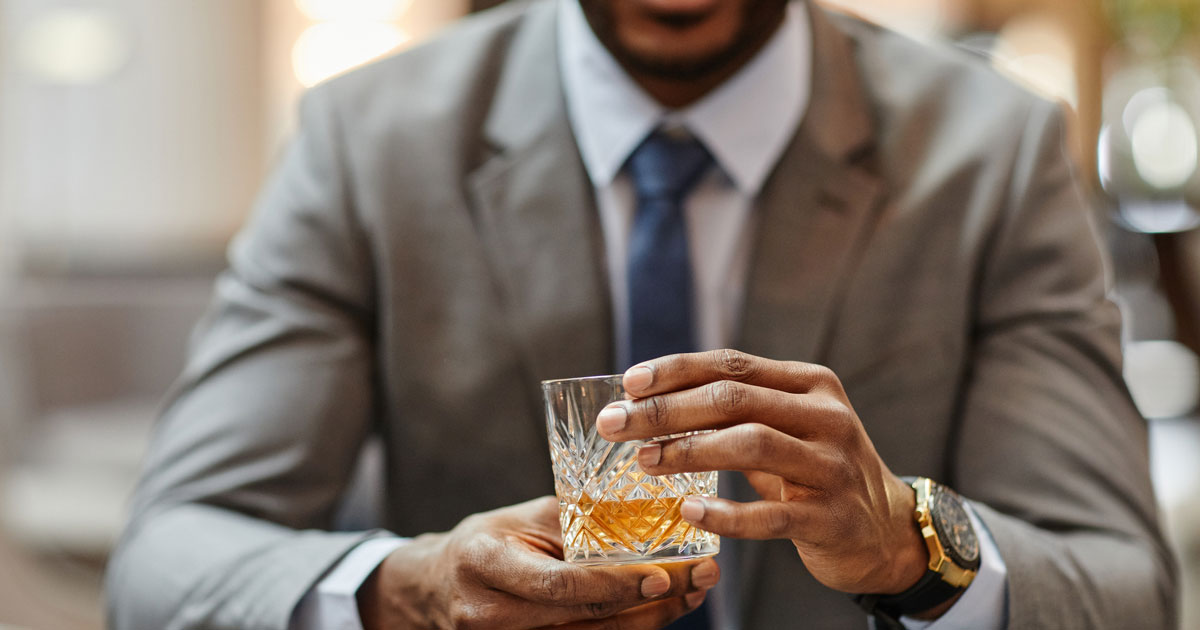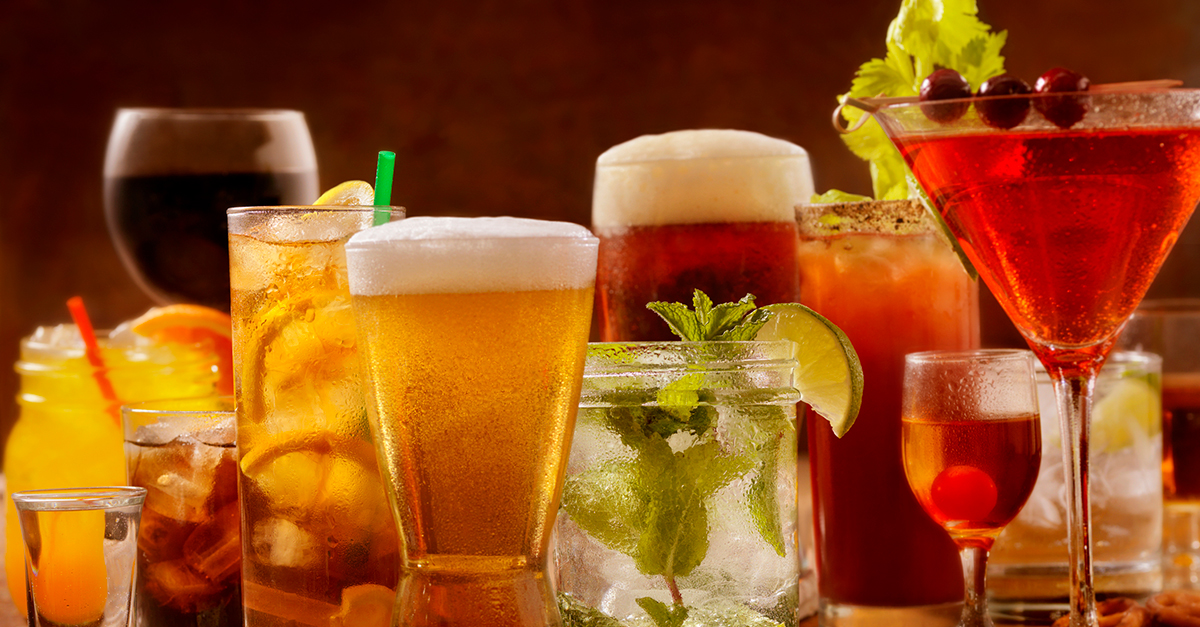
Some people won’t smoke cigarettes because they know tobacco use causes cancer. But they may not think twice about going out for drinks—oblivious to the cancer risk alcohol also poses.
Despite stories of centenarians crediting their longevity to daily shots of whiskey, or studies attributing health benefits to red wine, leading cancer organizations now say there’s no amount of alcohol that’s safe to drink without increasing cancer risk. Fewer drinks are better than more drinks, but any drinking increases the risk for alcohol-related cancers.
An American Cancer Society study using data from 2014 measured the incidence rates for these three leading cancer risk factors:
Cigarette smoking: 19 percent of cases and 29 percent of deaths
Excess body weight: 7.8 percent of cases and 6.5 percent of deaths
Drinking alcohol: 5.6 percent of cases and 4 percent of deaths
Alcohol even ranked ahead of UV radiation, which the study linked to 5 percent of cancer cases and 1.5 percent of cancer deaths.
One reason alcohol may not have the same stigma as smoking is that, while drinking may increase cancer risk, tobacco use has a much clearer correlation, says Pankaj Vashi, MD, Vice Chief of Staff at City of Hope® Chicago.
“As for the scientific basis of smoking as a cause of cancer, the data is very, very strong compared to that for alcohol,” Dr. Vashi says. “There’s obviously a relationship between drinking and certain cancers, but you’re usually talking about people who drink a lot.”
A 2021 study by the University of Virginia indicates that most Americans are unaware that drinking alcohol may increase cancer risk. Of those surveyed:
- 20 percent were aware that wine increases cancer risk.
- 25 percent knew that beer increased risk.
- 31 percent knew that liquor increased cancer risk.
The study was conducted to determine support for warning labels, advertising bans and other steps to raise awareness about the dangers of drinking.
Alcohol consumption has been connected to a higher risk for these types of cancer:
Heavy drinking may also raise the risk for pancreatic cancer and stomach cancer.
The risk of cancer increases the more a person drinks and continues to drink over time. If you stop drinking, it still takes time for the increased risks to drop significantly.
This article will explore these topics:
- Why does alcohol cause cancer?
- Are people protected if they drink moderately?
- The debate over red wine
- What are the risks for cancer patients?
If you’ve been diagnosed with cancer and are interested in a second opinion about your diagnosis or treatment plan, call us or chat online with a member of our team.
Why does alcohol cause cancer?
The chemical connection
It doesn’t make a difference if you’re drinking beer, wine or whiskey—all alcoholic beverages have one thing in common: They contain ethanol.
When you drink alcohol, your body breaks down the ethanol by converting it into a chemical called acetaldehyde, a toxin and carcinogen. Acetaldehyde damages DNA and may interfere with the body’s ability to repair it. It’s that damage that may be responsible for cancer. Your cells rely on instructions from your DNA to grow and function properly. Damaged DNA may cause cells to grow out of control, potentially creating cancer tumors.
Most ethanol converts to acetaldehyde in the liver and stomach. While this change occurs with any amount of alcohol, it’s a bigger problem for heavy drinkers or binge drinkers because the body can’t process the alcohol being consumed fast enough, allowing a buildup of acetaldehyde.
“Binge drinking, say a six-pack on Saturday vs. one beer every day for six days, produces those toxins at a very high level in the circulation,” Dr. Vashi says. “The damage to healthy tissue is much more significant in binge drinkers than in people who drink the same amount over the period of one week.”
Hormones are affected
Another effect of drinking alcohol is that it raises estrogen levels in the blood, increasing the risk for breast cancer in women. One way hormones work is by informing cells to grow and divide. The more they divide, the greater the possibility that something will go wrong in the process. Increased estrogen levels may lead to abnormal development of breast tissue, increasing breast cancer risk.
Absorption problems with alcohol
Researchers say alcohol makes it easier for the body to absorb cancer-causing toxins, while impeding the body from absorbing nutrients that help prevent cancer.
This may explain why combining alcohol and tobacco use greatly increases cancer risk, particularly for esophageal and throat cancers. Researchers believe alcohol makes the throat more susceptible to the poisons in tobacco smoke.
Alcohol intake also makes it harder for the body to break down and absorb some essential nutrients, such as folate and vitamins A, C, D and E.
The connection to excess weight
Alcohol may also contribute to another significant risk factor for cancer, excess body weight, because it frequently leads to weight gain.
“When people drink on a regular basis—hard liquor or beers—they’re getting empty calories. Drinking alcohol on a regular basis may also stimulate your appetite, so you end up eating more,” Dr. Vashi says.
“You’re not only piling up those calories from the beer, but then you’re eating more than you would’ve otherwise because now you’re feeling hungrier,” he says. “Obesity and alcohol have had a significant relationship in the United States. It’s possible that the obesity connection to excessive alcohol use is what adds fuel to the fire, so to speak. Then it becomes two risk factors for cancer.”
Is moderation the answer?
Medical professionals preach moderation when it comes to many manageable risk factors for cancer and other health conditions. It’s the same with alcohol: Experts recommend no more than two drinks a day for men and one drink a day for women.
Still, those recommendations don’t mean moderate drinking is safe, given the link between alcohol and cancer risk. Moderate drinking puts you at lower risk than if you were drinking more, but at greater risk than if you didn’t drink at all.
Also, many people may think they’re drinking moderately when they’re not. A cocktail with three shots is considered three drinks, not one. And two craft beers a day at 9 percent alcohol by volume (ABV) puts a man over the two-drink-a-day guideline for moderation.
When doctors talk about a “drink,” they mean a standard drink that has about 14 grams of alcohol. Each of these is equivalent to one drink:
- 12 ounces of beer at 5 percent ABV
- 8-9 ounces of malt liquor at 7 percent ABV
- 5 ounces of wine at 12 percent ABV
- 1.5 ounces, or a "shot," of 80-proof liquor
“How much you drink is very important. There’s a level beyond which, if you do it on a regular basis, it’s definitely going to make you a high-risk patient for certain cancer types,” Dr. Vashi says.
The debate over red wine
Of all the types of alcohol you may drink, Dr. Vashi says, red wine may be the most acceptable from a health perspective. He doesn’t recommend red wine as a healthy lifestyle choice—and he’s not suggesting a non-drinker start drinking red wine—but he sees it as a lesser evil compared to other alcoholic beverages.
Many Western Europeans are known to drink red wine for lunch and dinner, starting as young teens, yet those countries show a lower prevalence of cancer than in the United States. This trend may have something to do with resveratrol, a polyphenol found in the skin of red grapes that acts as an antioxidant and impedes the metabolic activation of carcinogens.
“Nobody is going to say alcohol is OK. What I’m trying to say is that if you have to drink, you might be better off drinking a glass of red wine because there’s some benefit to that,” Dr. Vashi says. “You’re better off just not drinking at all, but if you’re going to drink, red wine is better than anything else.”
Added concerns for cancer patients
Drinking alcohol may cause other problems for people who already have cancer or are cancer survivors.
It may worsen side effects like nausea, dehydration and mouth sores caused by chemotherapy and other cancer drugs. It also increases the risk for a recurrence of diseases like breast cancer.
Dr. Vashi says he counsels cancer patients to stop drinking, but he’s also sensitive to their quality-of-life issues and understands social drinking may offer some enjoyment amid the challenges they’re facing.
“I, personally—and I think most clinicians feel this way too—would not push them to completely abstain from drinking if they’re drinking socially,” he says.
“When a primary care physician conducts annual physicals of healthy people, for younger people coming out of college and who have partied a lot, that’s a time to start talking to them about the long-term effects of alcohol,” Dr. Vashi adds. “Alcohol is not going to give you cancer in a year or two of drinking. It’s the impact of drinking for 15, 20, 30 years. That’s why you see cancer diagnoses in people in their 50s and 60s, because they started drinking starting in their college days.”
If you’ve been diagnosed with cancer and are interested in a second opinion about your diagnosis or treatment plan, call us or chat online with a member of our team.


